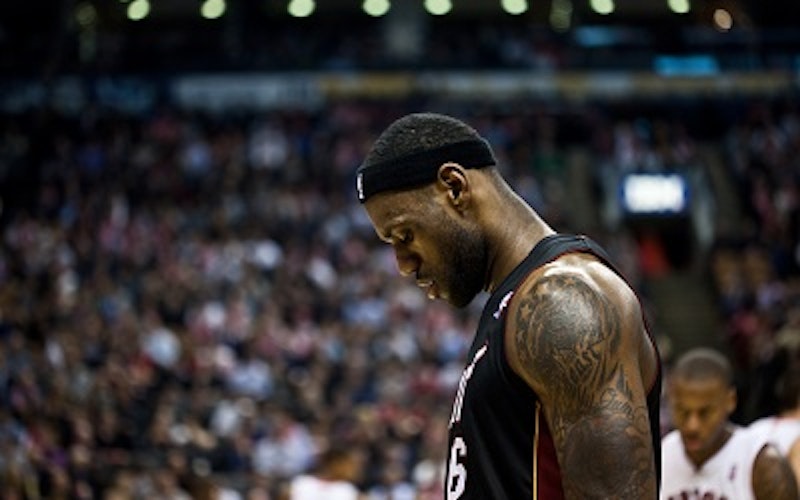
Culture At Large
LeBron James' letter: great PR or a new take on greatness?
When news of “The Letter” broke, I was listening to Colin Cowherd’s show on ESPN radio. LeBron James’ declaration that he would return home to play for the Cleveland Cavaliers was not only brilliantly handled, I thought, but also authentic.
With a little distance from the celebrated letter, though, I can’t help but wonder how well James himself matches up with the narrative that his marketing team so conscientiously crafted. Over the last few days, various commentators have tried to pin down James’ real motivations for returning home. We want an easy answer because we want to know James, and absent the kind of closeness necessary, we look for ways to identify him.
I can’t possibly present an entire picture of LeBron James, or any other human being for that matter, but on the limited basis of having observed his career, let me suggest one way of considering its present trajectory. First, I think James is hyper-aware of his ability to shape perception by writing his own narrative, and I think both this hyper-awareness and the story he’s writing are telling.
In the opening paragraph of his announcement, James refers to Northeast Ohio with a candid acknowledgement: “I sometimes feel like I’m their son.” This is remarkable because I sense that James, given his father’s lifelong absence, has a deeply human desire to be loved - to be wanted. Winning and legacy building are closely bound up in this, but likely secondary. I think he saw winning championships as the surest path to being loved, which leads me to a second observation.
When James left the Cleveland Cavaliers for the Miami Heat in 2010 – “The Decision” - Cavaliers owner Dan Gilbert posted a scathing letter on the team website. Cowherd said on his radio show that James’ letter not only reversed The Decision, but also, to some degree, reversed the embarrassing legacy of Gilbert’s letter. That is to say: it changed the narrative. On this point, here’s what stands out from James’ most recent letter: “I’ve met with Dan, face-to-face, man-to-man. We’ve talked it out. Everybody makes mistakes. I’ve made mistakes as well. Who am I to hold a grudge?”
James’ letter redefines what counts as a significant legacy.
Aside from the forgiveness asked for and extended here, that last line - “Who am I to hold a grudge?” - most stands out because it’s not something you would ever hear come out of Michael Jordan’s mouth. James may have accepted the “King James” nickname enough to tattoo it on his body, but Jordan is the one who demanded reverence and devoured anyone who dared not bow to, or help perpetuate, his greatness when he played in the NBA. Jordan was driven by a competitive rage that has careened into festering bitterness. At his retirement ceremony, this bitterness was as off-putting as it was revealing, and in a Wright Thompson feature on Jordan, the sadness underlying it all was never more evident.
LeBron James says, “Who am I to hold a grudge?” Michael Jordan’s entire career has been, by all accounts, motivated by grudges.
So it seems significant to me that when James left for the Heat it was to chase Jordan’s winning legacy. The path to being loved was to win like Mike. But James’ letter redefines what counts as a significant legacy - one that Jordan’s, for all of its winning, is unable to deliver. In saying that his calling goes beyond basketball, and in offering a bit of resignation that the Cavs are unlikely to win a string of championships, James is, intentionally or not, asking us to wonder if a commitment to Northeast Ohio, and maybe even one championship there, might in itself challenge Jordan’s throne.
I only hope that as James continues to mature, he comes to a place of security - or a Father - in which he can dole out assists for the love of it, not looking around frantically wondering if anyone witnessed. I hope his return is for the love of Northeast Ohio and not for the love of his legacy. And I hope he finds contentment in that place. James may not win four, five, six or seven. But if he wins a third in Cleveland, it will be one of the greatest assists in NBA history. And it may be enough to get those of us who love the NBA to begin reevaluating the criteria not just for greatness, but for greatest.
Topics: Culture At Large, Arts & Leisure, Sports